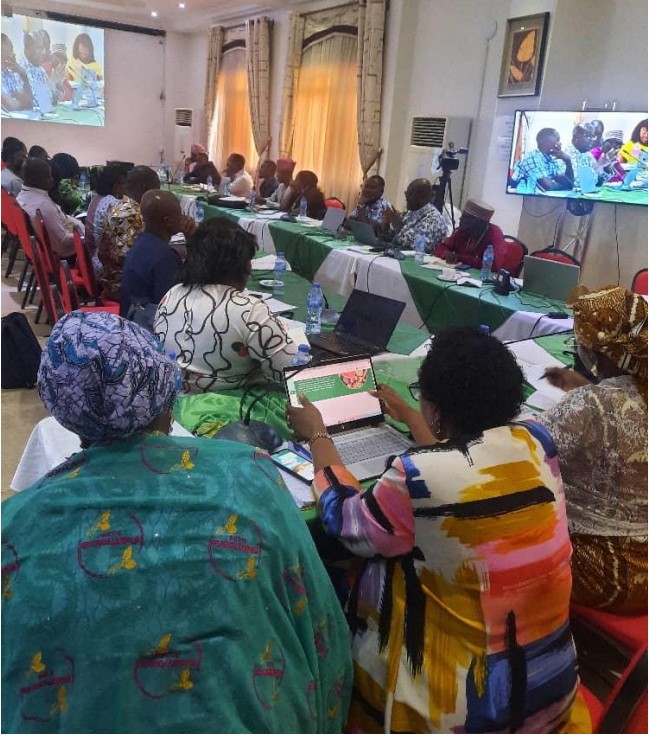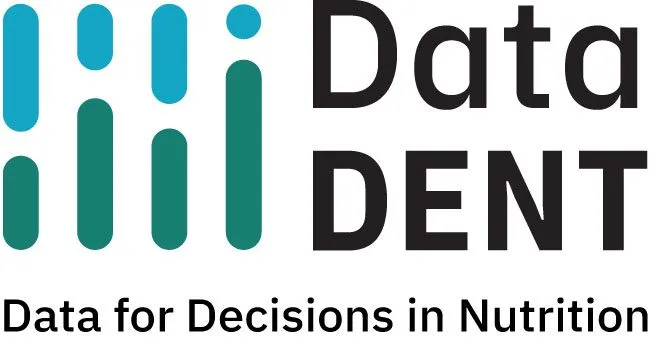
Photo 1. Stakeholders at a February 2024 sensitization workshop in Nigeria, photo credit DataDENT
In October 2022, participants in the Nigeria National Nutrition Data and Results Conference coalesced around the need for improved nutrition data coordination and stronger capacity for data use across sectors and institutions. They called for development of a multisector nutrition data strategic framework (MNDSF) and a national Nutrition Data Alliance (NDA) to facilitate its implementation.
To inform design of the MNDSF and NDA, DataDENT is carrying out an assessment among national and sub-national actors engaged with Nigeria’s National Multisectoral Plan of Action for Food and Nutrition (NMPFAN) 2021-2025. We are building from our 2018-2022 efforts with the Federal Ministry of Health and Social Welfare (FMOHSW) and partners to develop and disseminate Health Sector Recommendations for Nutrition Indicators collected nationally in Nigeria, a government policy document focused on nutrition data priorities within the health sector.
Taking a multisector perspective
There are at least 14 Ministries, Departments, and Agencies (MDAs) and numerous other institutions and development partners engaged in multisector nutrition actions in Nigeria. Data used by these actors at national and sub-national levels are collected across many different platforms including population-based surveys, surveillance systems and administrative information systems.
In recent years there have been notable efforts to compile and share available food and nutrition-related data in Nigeria – the Nigeria Food Systems Dashboard launched in 2020 and the forthcoming National Nutrition Dashboard overseen by the Federal Ministry of Budget and Economic Planning (FMBEP). However, we still need to understand how nutrition stakeholders outside of the health sector use data and to identify their priorities across the nutrition data value chain (DVC).
DataDENT’s assessment addresses this gap by engaging with the agriculture, education, social protection, water sanitation and hygiene (WASH) and humanitarian response sectors. We will identify key resources – financial and non-financial – required to support nutrition DVC strengthening. The assessment includes multiple components (Figure 1) at federal level and in two states – Kebbi in the North and Oyo in the South. The states were identified based on criteria agreed upon with government and other partners.

Figure 1.Overview of Stage 1
Progress to date
In early 2024 we started sensitizing Nigeria’s food and nutrition community about the multisector nutrition data assessment through targeted consultations with the FMBEP and key development partners. In February 2024 we held a workshop with members of the National Committee on Food and Nutrition (NCFN), MDA representatives, and selected partners including World Bank, UNICEF and FHI 360 (Alive & Thrive). These engagements allowed us to identify nutrition-relevant policies and data sources across sectors and to further refine the overall assessment design. Since then, we have completed the multisector nutrition policy review and are moving ahead with interviews at federal and state level.
The multisector policy review included federal and state level policies, strategies and action plans with nutrition content. The NMPFAN 2021-2025 is the overarching multisector nutrition strategy but some MDAs have their own strategies. For example, the Agricultural Sector Food Security and Nutrition Strategy released in May 2017 by the Federal Ministry of Agriculture and Food Security and the National Guidelines on Women’s and Girls’ Empowerment for Optimal Nutrition launched in March 2024 by the Federal Ministry of Women Affairs. Our review aimed to identify each MDA’s nutrition objectives, key actions and activities, and related indicators, targets and/or data sources specified in the policy documents. We also tried to assess how existing data were used to inform the policy design.
The in-depth interviews will identify different types of nutrition data users and producers across sectors and administrative levels in Nigeria. We will use findings to develop personas that capture common backgrounds, priorities, pain points and behaviors of different nutrition data stakeholder types.
Process insights
While we are still in early stages of the assessment, we have identified some important lessons from our previous efforts with the health sector and our ongoing multisector work that are informing how we proceed.
Partnership and persistence are required to foster government engagement. The government’s election cycle, nutrition leadership transitions, and evolving multisector coordination structures make consistent engagement challenging. Early on, DataDENT built a strong relationship with the World Bank Accelerating Nutrition Results in Nigeria (ANRiN) team by advising on their internal monitoring agenda. The World Bank facilitated an introduction to FMBEP leadership who convened the February 2024 multisectoral stakeholder sensitization workshop. Subsequent leadership transitions at FMBEP have required additional efforts to orient new leadership on the MNDSF and the NDA. Adequate time and resources need to be budgeted to support iterative networking.
Need to engage multiple MDA actors to understand priorities across the DVC. It is rare that a single person has the full picture of a sector’s nutrition actions and data priorities. The MDA nutrition focal points can often explain why specific indicators or data are prioritized in policies and how they are or are not being used. However, questions about how data are collected, curated, analyzed and disseminated, require talking to staff in the department of planning, research and statistics (DPRS) or an equivalent cross-cutting unit. It can be tempting to try to reduce the number of interviews but for a complete picture, they are needed.
Decentralization requires extensive sub-national engagement. In Nigeria’s decentralized context, federal government actors can speak to the policies and frameworks guiding nutrition priorities in their MDA or sector, but state and local government authority (LGA) level actors understand implementation and administrative data collection. Multi-sectoral food and nutrition committees exist at all three levels of government (federal, state, LGA) and our assessment will try to identify whether and how these coordination structures support data use in two specific states. Given Nigeria’s state-level diversity, we will aim to engage additional states through future stakeholder consultations.
Follow DataDENT on LinkedIn & X to stay updated on the multisector assessment process and to learn when the findings are available.
